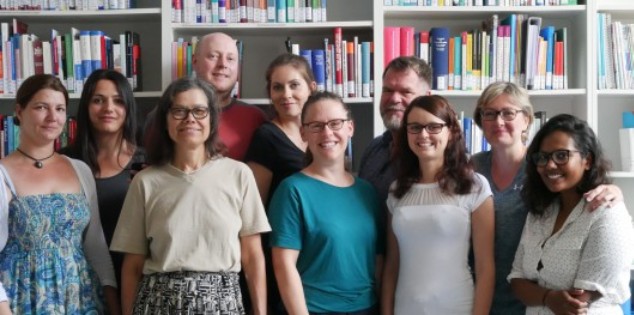At the Institute, eight professorships represent the subjects of digital philology, digital literary studies, modern German literary studies, corpus and computational linguistics, English philology, applied linguistics, computer philology and medieval studies, multilingualism and digital linguistics.
Four of these are located in the field of digital philology, which combines digital processes with the development of theory in the humanities. You can find more information on the research profile and current projects on our page on the research focus Digital Humanities.









